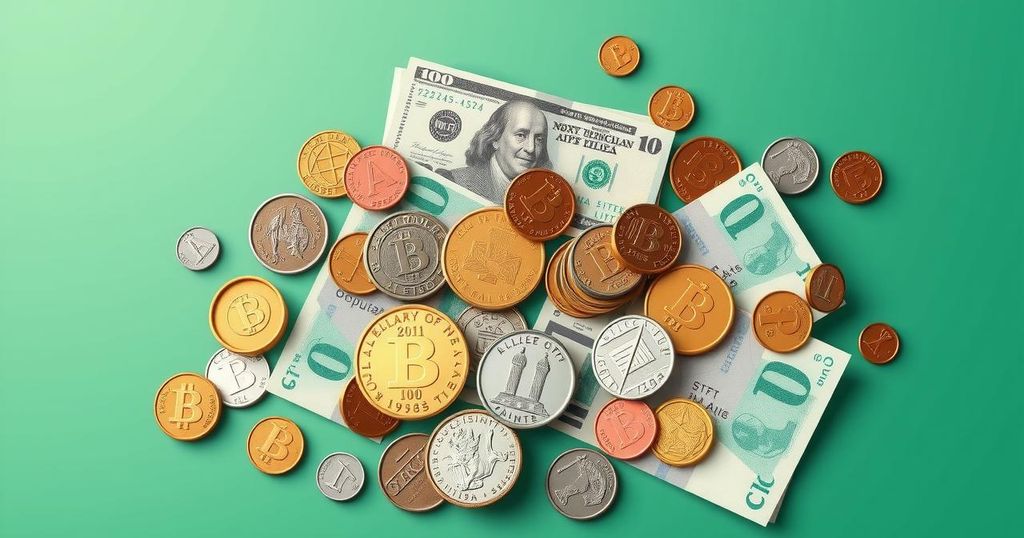Nigeria’s foreign debt service costs hit $5.47 billion from January 2024 to February 2025, adding pressure on national revenues and reserves. Foreign exchange direct remittances increased slightly to $180.03 million in early 2025. Debt servicing notably fluctuated with a high of $854.37 million in May 2024. Remittances showed signs of recovery in month-over-month comparisons, indicating potential benefits from recent CBN reforms.
The Central Bank of Nigeria (CBN) has reported that Nigeria incurred foreign debt servicing costs amounting to $5.47 billion from January 2024 to February 2025. This indicates an escalating financial burden on the nation’s revenues, affecting external reserves and fiscal stability. In comparison, foreign exchange direct remittances showed a modest Year-on-Year increase of 1.3% to $180.03 million during the initial months of 2025.
In May 2024, debt servicing peaked at $854.37 million, marking the highest expenditure in the analyzed timeframe. Conversely, the lowest payment recorded was $50.82 million in June 2024. CBN data highlights a 1.9% rise in debt service obligations in February 2025, escalating from $276.17 million in March to $283.22 million.
For the third quarter of 2024, total debt service obligations reached approximately N3.57 trillion, representing a quarter-on-quarter increase of N60 billion (1.71%) from N3.51 trillion in the preceding quarter. Notably, April 2024 saw a decline in obligations by 22.1% to $215.20 million before surging 297% to reach the May peak. June recorded a stark drop to $50.82 million before a rapid increase to $542.50 million in July.
Following a decline of 48.4% in August to $279.95 million, there was a notable 84.2% rise in September to $515.81 million. In October, debt service costs stabilized at around $515.86 million before dropping significantly to $232.50 million. Payments then increased to $328.91 million in December and further rose by 64.4% in January 2025 to $540.67 million, only to plummet by 48.8% to $276.73 million in February 2025.
The fluctuations in payments are a clear indication of the ongoing pressures on the country’s foreign exchange reserves. Additionally, combined debt service obligations (external and domestic) in Q3 2024 rose due to increased external payments and currency depreciation.
Foreign exchange direct remittances totaled $180.03 million in the first two months of 2025, marking a slight increase from $177.7 million in the same period in 2024. Month-on-Month analysis revealed remittances fell to $54.44 million in January 2025 from $138.56 million in January 2024 but saw a significant rise to $125.59 million in February 2025, which was a 220.8% leap from $39.15 million in February 2024.
Though total remittances in 2024 dropped by 3.5% to $1.91 billion from $1.98 billion in 2023, the initial figures for 2025 suggest that reforms implemented by the CBN may begin to yield positive results, despite concerns over declining remittances amidst ongoing migration trends.
The current report by the Central Bank of Nigeria highlights a significant financial burden on the country due to foreign debt servicing, which has reached $5.47 billion over 14 months. The increase in remittances, despite a recent decline, begs a cautious optimism regarding the impact of CBN reforms. Overall, the fluctuating nature of debt service payments indicates ongoing pressure on Nigeria’s foreign exchange reserves and fiscal health.
Original Source: www.arise.tv






